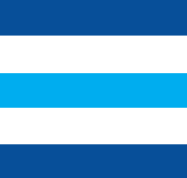Some employees and beneficiaries, unfortunately, have medical conditions that lead to continual or repetitive large claims. These large claims increase the cost of coverage for the plan as a whole.
After a termination of employment or a reduction to part-time, high-cost individuals are most likely to elect COBRA. This is often because they need the continuous coverage and have already satisfied a large part of the group health plan deductible. A COBRA election equates to continued high-cost claims submitted to the group health plan. But, what can be done?
Before the Affordable Care Act
Pre-existing condition limitations in effect before the Affordable Care Act (ACA), often chained high-cost individuals to their group health plan if they did not have another group health plan in which to quickly enroll.
Employers, just like they are now, were required to send complete COBRA notices to all qualified beneficiaries alerting them of their right to continue coverage under the group health plan. An employer was not allowed to attempt to persuade qualified beneficiaries to look elsewhere for coverage.
After the Affordable Care Act
Following implementation of the Affordable Care Act, persuasion is required! On May 8, 2013, the Department of Labor (DOL) published Technical Release 2013-02 that revised the model COBRA notice to include more detailed information to help make qualified beneficiaries aware of other coverage options available in the Marketplaces. In fact, the model notices state several times that coverage via the Marketplace may be cheaper than COBRA. The model notices read like an advertisement for the Marketplace and a buyer beware notice for COBRA continuation.
The ACA also abolished pre-existing condition limitations. Individuals can now enroll without the fear of claims being denied based on a pre-existing condition.
In late June 2016, the DOL, Health and Human Services (HHS), and the IRS, jointly released the following new FAQ promoting further persuasion by employers:
Q: The COBRA model election notice contains information about enrollment in the Marketplaces. Is it permissible for a group health plan administrator to include additional information about Marketplace coverage in or along with this notice?
A: Yes. An individual who experiences a qualifying event and therefore becomes eligible for COBRA continuation coverage (for example, a covered dependent who ages out of her parents’ health plan or a covered worker who loses his job), also becomes eligible to apply for Marketplace coverage as a result of the same event. As explained in the COBRA model election notice, for certain qualified beneficiaries, coverage obtained through a Marketplace may be a less expensive healthcare coverage option than enrollment in COBRA continuation coverage.
In Technical Release 2013-02, DOL indicated that the COBRA election notice may be used by plan administrators to assist qualified beneficiaries in understanding their health coverage options upon experiencing a qualifying event, including information regarding enrollment in Marketplace coverage (including the Marketplace website and phone number). DOL’s current model election notice is accessible at dol.gov/ebsa/modelelectionnotice.doc.
In addition, plan administrators may include with the COBRA election notice other information about the Marketplaces, such as: how to obtain assistance with enrollment (including special enrollment), the availability of financial assistance, information about Marketplace websites and contact information, general information regarding particular products offered in the Marketplaces, and other information that may help qualified beneficiaries choose between COBRA and other coverage options. We encourage plan administrators to consider how they can help individuals maintain the coverage that would best suit their needs through these transitions. COBRA election notices may be tailored to particular groups like young adults aging out of dependent coverage on their parents’ health plan. In all cases, they are required to be “easily understood by the average plan participant” and, therefore, information should not be too lengthy or difficult to understand
This new guidance clarifies that employers can take it a step further and provide additional information about coverage options other than COBRA.
Beware of ERISA Section 510 and Other Dangers
While an employer can now provide an unlimited amount of information and assistance to qualified beneficiaries who are making the choice between COBRA and other coverage, there are still some basic rules to follow.
ERISA Section 510 makes it unlawful for any person to discharge or otherwise discriminate against a participant or beneficiary (a) for exercising a right that the participant or beneficiary is entitled to under ERISA or under an employee benefit plan; or (b) for the purpose of interfering with any right that the participant or beneficiary may become entitled to under ERISA or under an employee benefits plan. Thus, an employer cannot fire an employee because of high claims cost. In addition, an employer should not provide extra information and assistance about options other than COBRA only to high-cost individuals. These situations could also lead to claims under the Americans with Disabilities Act.
The ERISA fiduciary standards require plan sponsors to act in the best interest of participants and beneficiaries. In some cases, COBRA may be the best option. For example, a qualified beneficiary who has satisfied the annual deductible might be better off to pay the COBRA premium and remain on the group health plan through the end of the year. Too much persuasion in the other direction, might be seen as a breach of the fiduciary duty to always act in a beneficiary’s best interest.
The Bottom Line
Employers should continue to provide compliant and timely COBRA election notices. Employers who wish to provide additional information and assistance to qualified beneficiaries about options other than COBRA should develop materials that are easy to understand and deployed on a consistent basis. This proactive extra step could help shield their health plans from the impact of high cost COBRA participants.



